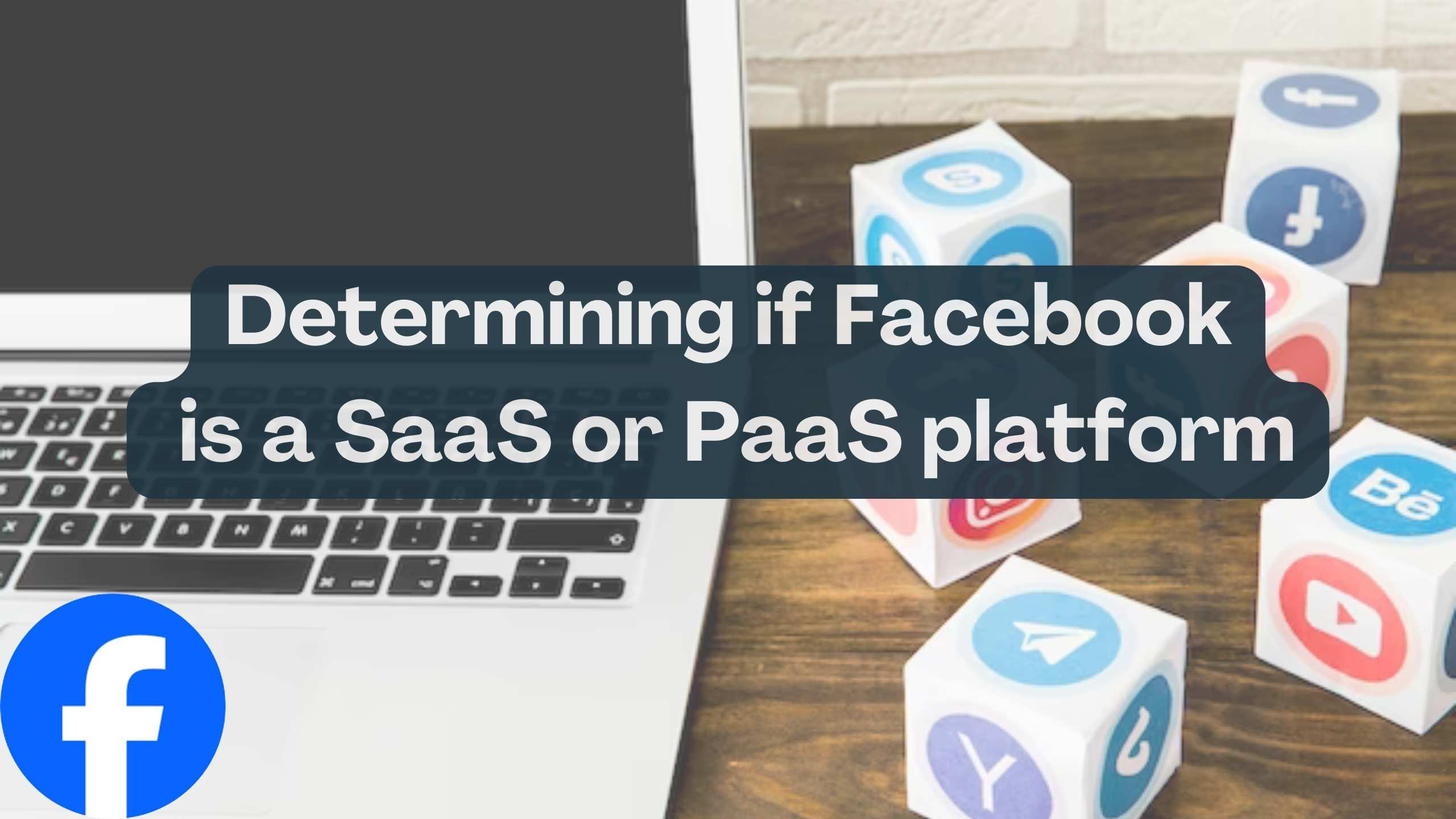Determining if Facebook is a SaaS or PaaS platform
- Expense Management Software Credit Cards Investing Business Solutions


Determining if Facebook is a SaaS or PaaS Platform: Unraveling the Complexity
In the realm of cloud computing, categorizing platforms like Facebook can be a matter of debate. Is it a Software as a Service (SaaS) platform, offering ready-to-use applications, or does it fall under the Platform as a Service (PaaS) category, providing a platform for developers to build and deploy custom applications? Let’s delve into the intricacies and explore the characteristics that define Facebook’s nature.
Understanding SaaS and PaaS
SaaS (Software as a Service)
SaaS platforms deliver software applications over the internet on a subscription basis. Users access these applications through web browsers without the need for installation or maintenance. The primary advantage of SaaS is the accessibility of powerful software without the burden of managing infrastructure.
PaaS (Platform as a Service)
PaaS platforms provide a framework that allows developers to build, deploy, and manage applications without dealing with the underlying infrastructure complexities. It streamlines the development process by providing tools, libraries, and services necessary for application development.
Deciphering Facebook’s Classification
1. SaaS-like Characteristics
- Ready-to-Use Application: Facebook, in its essence, offers a comprehensive set of features and functionalities accessible to users without the need for development or customization. Users can simply sign up and start using the platform.
- Subscription Model: While Facebook is free to use, its business model relies on advertising revenue, which can be likened to a subscription in exchange for service usage. Advertisers essentially subscribe to the platform to reach its massive user base.
2. PaaS-like Attributes
- Development Framework: Facebook provides APIs and development tools for third-party developers to create applications and integrate with its platform. The Facebook Graph API, for instance, allows developers to access and use data on Facebook.
- Customization Options: Beyond its standard features, businesses and developers can leverage Facebook’s platform to build and deploy custom applications. This extends the platform’s functionality beyond its core features, aligning with the principles of PaaS.
The Verdict: Facebook as a Hybrid Model
Given its dual nature, Facebook exhibits characteristics of both SaaS and PaaS platforms. While it primarily functions as a SaaS platform, offering a pre-built application accessible to users, it also provides a platform for developers to create and deploy custom applications, aligning with the principles of PaaS.
Navigating the Evolving Landscape of SaaS
The evolution of technology continually challenges traditional classifications. Platforms like Facebook, with their multifaceted functionalities, highlight the need for a nuanced understanding of cloud service models. As businesses navigate the digital terrain, understanding the intricacies of SaaS and PaaS models becomes paramount for informed decision-making and strategic alignment.
Exploring Relevant SaaS Products
1. Google Workspace: Collaborative Suite for Productivity
- Google Workspace: Empower your team with collaborative tools for productivity and communication. From Gmail to Google Drive, it’s an integrated solution.
2. Microsoft 365: Integrated Productivity Solution
- Microsoft 365: Unlock the potential of your team with integrated productivity apps and services. Word, Excel, Teams – everything you need in one package.
3. Salesforce: Leading CRM Software
- Salesforce: Drive customer success and streamline business processes with the world’s #1 CRM platform. A comprehensive solution for sales, service, and marketing.
4. HubSpot: Comprehensive Marketing and Sales Software
- HubSpot: Grow your business with HubSpot’s all-in-one marketing, sales, and service software. It’s a complete solution for inbound marketing and sales automation.
Conclusion: Embracing the Complexity of Modern Platforms
In the dynamic landscape of cloud computing, platforms like Facebook blur the lines between traditional classifications. As businesses embrace digital transformation, the convergence of SaaS and PaaS functionalities becomes more evident. This hybrid approach enables platforms to cater to a broader audience – from end-users seeking ready-made solutions to developers crafting custom applications. Unlock exclusive deals and gain valuable insights into a diverse array of SaaS tools at Subscribed.FYI. Sign up today to access a wealth of resources and stay ahead in the ever-evolving world of technology.
Relevant Links:








